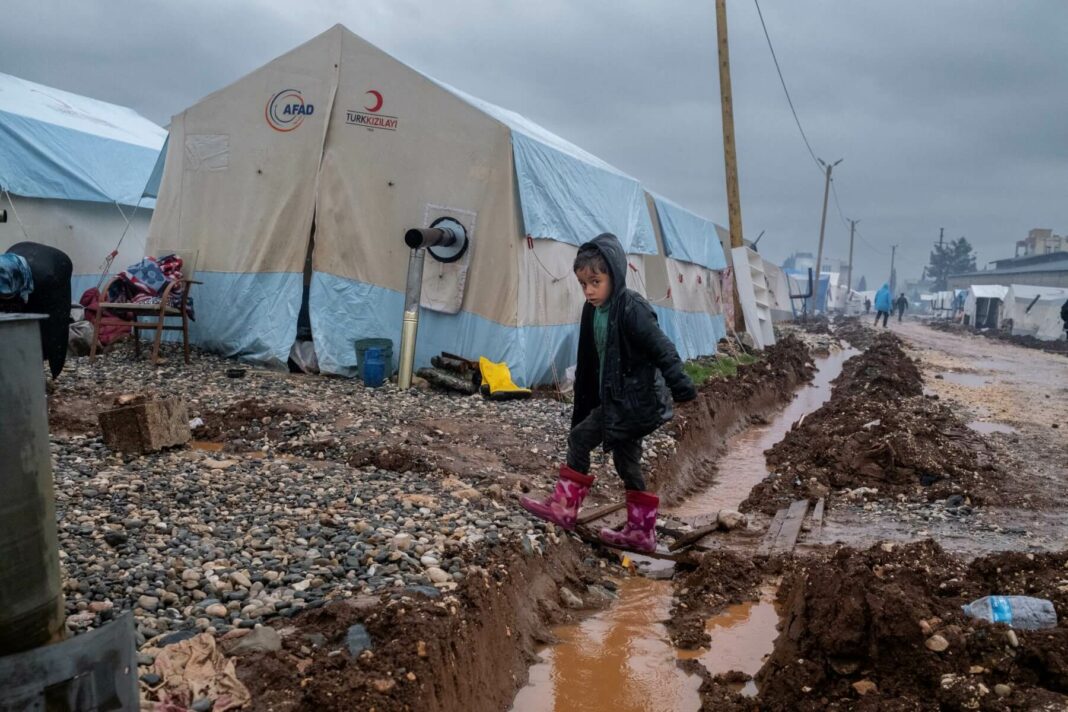As Turkey will tomorrow mark the first anniversary of devastating earthquakes that hit the country’s south on February 6 in 2023, the pro-Kurdish Peoples’ Equality and Democracy Party (DEM Party) has asked the government a total of 100 questions, demanding detailed and accurate information about a wide range of issues that still remain in the dark.
The list of the questions was drafted by DEM Party deputy group chairpersons Sezai Temelli and Gülistan Kılıç Koçyiğit and directed to Vice President Cevdet Yılmaz.
The magnitude 7.8 and 7.5 earthquakes affected 11 provinces in the country’s south and southeast on February 6, killing more than 53,000 people in Turkey and leaving millions homeless.
Some of the questions asked by the DEM Party include why the government was late in launching search and rescue efforts following the earthquakes. Many criticize the Turkish government for its slow and poor response and lack of coordination and cooperation among state agencies to carry out search and rescue efforts. There are many survivors who say their collapsed buildings were not tended to for days, leading to the passing of their family members trapped under the debris either due to a lack of timely medical attention or from freezing to death.
The DEM Party also asked the government the true death toll from the earthquakes since there is widespread speculation about the official figures.
Interior Minister Ali Yerlikaya last week said 53,537 people in Turkey had died in the earthquakes, revising a previous figure of 50,783. Considering the massive damage caused by the earthquakes, many voice suspicions about the accuracy of this figure and accuse the government of masking the true death toll in order to downplay the scale of the disaster.
The DEM Party asked exactly how many buildings collapsed in the earthquakes, how many damaged buildings have been or will be demolished and what kind of measures are being taken to prevent the negative effects of exposure to asbestos in the rubble of demolished buildings.
According to a recent report by the Chamber of Environmental Engineers (ÇMO), asbestos was detected in 16 out of 45 solid and dust samples collected from different regions of Hatay, one of the areas hardest hit by the powerful earthquakes.
Experts warn that the earthquake-stricken region is now facing a significant public health crisis that could potentially turn into a new disaster. Hundreds of thousands of people in the region or in contact with the region are at risk.
The DEM Party also asked questions about the children in the quake region such as how many children died in the earthquakes, how many of them went missing and how many of them were left disabled. The party asked what kind of problems the children in the earthquake-zone face in education, healthcare and accommodation and what kind of measures the government is taking to address them, in addition to the amount of money the government has spent for these children since the earthquakes.
The party also asked questions about whether the government is taking measures to prevent similar tragedies from taking place in future earthquakes.
“How many schools across Turkey have been inspected to determine their resistance to earthquakes? How many of those that were poorly constructed will be demolished?” asked the party.
Several questions asked by the DEM Party concerned judicial proceedings against those responsible for the shoddy construction of collapsed buildings, such as how many of them have been identified, how many indicted, detained or arrested and whether these people will get the necessary punishment for their role in the deaths of so many people and such massive destruction.
